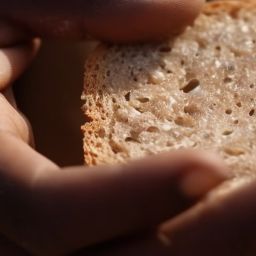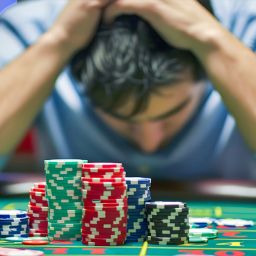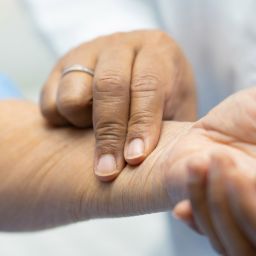Hey there, if you’re navigating the challenging landscape of addiction recovery, you know it’s not a straight line. It’s more like a winding road, with ups, downs, and unexpected turns. You’ve probably heard about traditional methods, the standard talk therapy, and medical interventions. But what if there’s more? What if there are other avenues, different approaches that could complement your journey, making it a bit smoother, a little more tailored to you? That’s where we’re headed today. We’re going to explore five powerful alternative therapies for addiction recovery, methods that might just provide the extra support you’re looking for. Let’s be real, the search for effective therapies for addiction is a personal quest, unique to each individual. So, let’s dive into these options, and see if any of them resonate with you.
1. Art Therapy: Painting Your Way to Healing

Ever picked up a paintbrush and just let your feelings flow onto the canvas? Art therapy takes that simple act and transforms it into a structured, therapeutic process. It’s not about creating masterpieces, though. It’s about expressing what words can’t always capture. Many people struggling with addiction find it difficult to articulate their emotions. The trauma, the pain, and the sheer complexity of their experiences can be overwhelming. Art becomes a safe space, a non-verbal outlet. You might be wondering how this actually works. Well, imagine you’re given a set of colors, clay, or even just some paper and pencils. A therapist guides you, not by telling you what to create, but by encouraging you to explore your inner world. You might find yourself drawing abstract shapes, sculpting a figure, or even just scribbling. The point is, there’s no right or wrong. It’s about the process, the exploration, and the self-discovery. This allows for a deeper understanding of oneself, and the ability to work through emotions in a tangible way. It’s about creating something from the chaos inside, turning pain into something meaningful, something that represents your journey towards addiction recovery.
Discover Self-Awareness Through Art Therapy
Think of it like this: your emotions are a tangled ball of yarn. You can’t just pull on one string and expect it to unravel. Art therapy gives you a way to gently work with each strand, to see the patterns, and to understand how they connect. It is a way to look at the inner self, and understand where the issues are stemming from. This approach to alternative therapies, often utilized within broader therapies for addiction recovery, allows the individual to develop a new sense of self and empowers them to take control of their lives. It’s a way to unlock parts of yourself that have been hidden, perhaps even forgotten. Furthermore, it is a way to develop a new sense of self-awareness, and an understanding of your personal triggers.
2. Equine Therapy: Finding Connection and Trust
 Have you ever been around horses? There’s something undeniably powerful about their presence. They’re big, strong, and yet incredibly sensitive. Equine therapy, one of the more unique alternative therapies and a valuable part of therapies for addiction recovery, leverages this connection to help individuals in addiction treatment. It’s not about riding lessons, though. It’s about building a relationship with these magnificent animals. You might be thinking, “How can a horse help me with my addiction?” The answer lies in the unique dynamic that develops between humans and horses. Horses are masters of non-verbal communication. They can sense your emotions, your anxiety, your fear, and your vulnerability. They mirror these emotions, providing immediate feedback. This instant feedback is incredibly valuable for people in recovery, who often struggle with understanding their own feelings and behaviors.
Have you ever been around horses? There’s something undeniably powerful about their presence. They’re big, strong, and yet incredibly sensitive. Equine therapy, one of the more unique alternative therapies and a valuable part of therapies for addiction recovery, leverages this connection to help individuals in addiction treatment. It’s not about riding lessons, though. It’s about building a relationship with these magnificent animals. You might be thinking, “How can a horse help me with my addiction?” The answer lies in the unique dynamic that develops between humans and horses. Horses are masters of non-verbal communication. They can sense your emotions, your anxiety, your fear, and your vulnerability. They mirror these emotions, providing immediate feedback. This instant feedback is incredibly valuable for people in recovery, who often struggle with understanding their own feelings and behaviors.
Building Confidence and Life Skills
During an equine therapy session, you might groom a horse, lead it, or simply spend time observing it. The therapist acts as a facilitator, helping you process your experiences and draw parallels to your own life. For instance, if you’re struggling with trust, working with a horse can teach you about boundaries, communication, and the importance of consistency. It’s about learning to be present, to be mindful, and to connect with another living being. The horse is a metaphor, a mirror reflecting your inner state. It’s a way to understand your own patterns, your own defenses, and your own capacity for connection. This unique form of alternative therapies for addiction recovery allows for the development of trust, and the development of interpersonal skills. Moreover, it is a way to develop a sense of responsibility and to build confidence.
Imagine you’re trying to lead a horse through an obstacle course. If you’re tense or anxious, the horse will sense it and become resistant. But if you’re calm and confident, the horse will follow your lead. This simple interaction can teach you so much about your own energy and how it impacts your relationships. It’s a powerful way to understand the importance of self-regulation and emotional awareness, both essential tools on your path to addiction recovery.
3. Mindfulness and Meditation: Making Peace Inside

In the chaos of addiction, finding a moment of peace can seem impossible. But what if you could learn to create that peace within yourself? Mindfulness and meditation offer a way to do just that. They’re not about escaping your problems; they’re about learning to sit with them, to observe them without judgment. You might be wondering, “How can sitting still and breathing help me with my cravings?” The key resides within the strength of mindful observation. When you’re mindful, you become more aware of your thoughts, your feelings, and your physical sensations. You start to notice the triggers that lead to cravings, the emotional states that precede a relapse. This awareness gives you a choice, a moment to pause before reacting.
Meditation for Addiction Recovery: Finding Inner Peace and Self-Control
During a meditation session, you might focus on your breath, a mantra, or a guided visualization. The goal is to quiet the mind, and to create space between your thoughts and your actions. It’s about learning to be present in the moment, to accept what is, without trying to change it. This practice can be incredibly challenging, especially in the early stages of addiction recovery. But with time and patience, it can become a powerful tool for self-regulation. Mindfulness helps you recognize the thoughts that lead to destructive behaviors, and it allows you to choose a different path. It is a way to learn to control your impulses, and to develop a sense of inner peace. This method of therapy for addiction also allows for the development of self-compassion, and the ability to forgive oneself.
Think of your mind as a turbulent sea. Mindfulness is like learning to navigate those waves, to ride them without being swept away. It’s about finding your center, your anchor, and staying grounded even when the storms rage. It is a way to develop a new relationship with your thoughts, and to learn to observe them without judgement. This allows for a greater understanding of your inner self, and the ability to make healthy choices. It is a way to create a sustainable path to addiction recovery.
4. Yoga and Movement Therapy: Healing Through Body and Breath
 Addiction doesn’t just affect the mind; it takes a toll on the body as well. Years of substance abuse can leave you feeling disconnected from your physical self, trapped in a cycle of tension and pain. Yoga and movement therapy offer a way to reconnect, to heal the body and the mind in tandem. One could easily assume, ‘My body isn’t pliable, I don’t belong in a yoga setting. How can this help me?” The beauty of these practices is that they’re accessible to everyone, regardless of fitness level or experience. It’s not about achieving perfect poses; it’s about moving your body with intention, with awareness. Yoga, for example, combines physical postures, breathing techniques, and meditation. It’s a way to release tension, to improve flexibility, and to cultivate a sense of calm. Movement therapy, on the other hand, uses dance, expressive movement, and other forms of physical activity to explore emotions and promote healing.
Addiction doesn’t just affect the mind; it takes a toll on the body as well. Years of substance abuse can leave you feeling disconnected from your physical self, trapped in a cycle of tension and pain. Yoga and movement therapy offer a way to reconnect, to heal the body and the mind in tandem. One could easily assume, ‘My body isn’t pliable, I don’t belong in a yoga setting. How can this help me?” The beauty of these practices is that they’re accessible to everyone, regardless of fitness level or experience. It’s not about achieving perfect poses; it’s about moving your body with intention, with awareness. Yoga, for example, combines physical postures, breathing techniques, and meditation. It’s a way to release tension, to improve flexibility, and to cultivate a sense of calm. Movement therapy, on the other hand, uses dance, expressive movement, and other forms of physical activity to explore emotions and promote healing.
Body Awareness and Movement in Alternative Therapies
These alternative therapies work by helping you become more aware of your body, your breath, and your physical sensations. You start to notice the places where you hold tension, the areas where you feel pain. You learn to release those blocks, to move with greater ease and fluidity. This physical release can also lead to emotional release, as you start to process the trauma and pain that’s been stored in your body. It is a way to create a new relationship with your body, and to develop a sense of self-acceptance. Furthermore, it is a way to release emotional pain, and to develop a sense of physical and emotional wellbeing.
Imagine your body as a tightly wound spring. Yoga and movement therapy is like gently unwinding that spring, releasing the tension, and allowing your energy to flow freely. It’s about finding a sense of balance, a sense of harmony between your mind and your body. It is a way to build strength, both physically and emotionally, and to create a solid foundation for your addiction recovery. The physical act of movement allows for the release of endorphins, which can help to improve mood, and reduce stress. It is a way to develop a sense of self-efficacy, and to take control of your physical and emotional wellbeing.
5. Nutritional Therapy: Fueling Your Recovery
 What you put into your body has a profound impact on your mental and emotional health. Years of substance abuse can deplete your body of essential nutrients, leaving you feeling depleted and vulnerable. Nutritional therapy focuses on restoring that balance, and on fueling your recovery with healthy, nourishing foods. You might be wondering, “How can food help me with my cravings?” The answer lies in the complex interplay between nutrition, brain chemistry, and mood. When your body is properly nourished, your brain functions more effectively. You have more energy, better focus, and a greater capacity to handle stress. This can significantly reduce cravings and improve your overall sense of well-being.
What you put into your body has a profound impact on your mental and emotional health. Years of substance abuse can deplete your body of essential nutrients, leaving you feeling depleted and vulnerable. Nutritional therapy focuses on restoring that balance, and on fueling your recovery with healthy, nourishing foods. You might be wondering, “How can food help me with my cravings?” The answer lies in the complex interplay between nutrition, brain chemistry, and mood. When your body is properly nourished, your brain functions more effectively. You have more energy, better focus, and a greater capacity to handle stress. This can significantly reduce cravings and improve your overall sense of well-being.
How Nutritional Therapy Strengthens Mental and Emotional Health
A nutritional therapist will work with you to create a personalized meal plan, tailored to your specific needs and preferences. They’ll help you identify any deficiencies, and recommend foods and supplements to address them. They’ll also educate you about the importance of balanced meals, regular eating habits, and the impact of sugar and processed foods on your mood and cravings. This aspect of addiction treatment, often considered one of the valuable alternative therapies, is frequently overlooked, but it’s a crucial component of long-term recovery. It’s about building a strong foundation, a healthy body that can support your emotional and mental wellbeing, and is an important part of comprehensive therapies for addiction recovery.
Think of your body as a high-performance machine. You wouldn’t put cheap fuel in a Ferrari, would you? Nutritional therapy is about giving your body the premium fuel it needs to function at its best. It’s about building a strong, resilient body that can handle the challenges of addiction recovery. It is a way to develop a healthy relationship with food, and to learn to nourish your body with care. The importance of proper nutrition cannot be understated when it comes to the success of an individual’s path to addiction recovery. It is a way to develop a sense of self-care, and to take control of your physical health.
Seeking Professional Help?
Ready to explore these alternative therapies for addiction recovery and find a sustainable path to addiction recovery? Don’t let addiction control your life or the life of someone you care about any longer. Contact 70×7 Wellness Mission in Baltimore today to discuss personalized addiction treatment options. Take the first step towards a healthier, happier future and reach out to 70×7 Wellness Mission to discover how their comprehensive therapies for addiction can support your journey.
Conclusion
Now, you might be thinking, “Which of these alternative therapies is right for me?” The truth is, there’s no one-size-fits-all answer. The most effective approach is often a combination of traditional and alternative methods, tailored to your individual needs and preferences. It’s about creating a comprehensive plan that addresses all aspects of your well-being, the physical, emotional, and spiritual. Consider these therapies for addiction as valuable tools in your toolbox, each offering unique benefits that can complement your overall addiction recovery. Remember, the journey is personal, and finding what resonates with you is key to building a sustainable path to addiction recovery. Ultimately, embracing a variety of approaches can provide a more balanced and enriching experience, leading to a more complete and lasting healing.
















